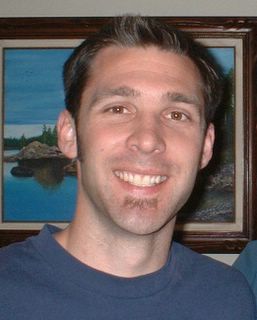Back in Idaho, we have a certain type of tree that acts more like a weed than the deciduous organism it is. The tree comes up looking like any other tree, but then it grows at an accelerated rate and invites its friends. Soon, you have 20 trees where you only wanted one. So, you decide to chop it down. "Ha!" the tree says. "You can chop me down, but I'll be back." And so it does come back, with even more friends! My mom actually
liked (note the past tense :-)) these trees until they took over her yard. At the point of relocating the house so they could make room for more trees, Mom had enough. So, she got busy cutting trees. But she had learned that just cutting the tree wouldn't make it go away. Instead, she had to go down into the earth, to the root structure, and dig and cut and completely remove the root system. Once she removed the roots, the tree problem stopped.
I think of this in terms of my life. Yesterday was not what I would call a day I'd want to repeat. I spent the entire day thinking about/stressing about and wishing away unwanted "trees" in my life. By the end of the day, all I could see were trees and I had grown despondent, depressed, and even angry. The trees seemed overwhelming, even though I have been tirelessly hacking away at them. But they just haven't gone away and there seem to be even more trees now than there were when I started getting rid of them!
What a terrible place to be - hacking away at problems and seeing little or no results. Spending energy on "bettering" our lives and ending up worse. I mean, what's the point of that? I consider myself an optimistic person, but even the most optimistic personality glimpses reality when reality has emerged as a very dark cloud.
How much time do we spend on our problems? How much energy? How much of our passion is drained because we are cutting down trees that inevitably come back? Shouldn't we just give up, let the trees take the house? What's the alternative?
The alternative is dealing with the real problem.If you had asked me at 5 PM yesterday what my problem was, I would have given you a huge list. I had gone "global" as a friend of mine used to say, and nothing in life seemed to be going right anymore - my work situation, my marriage, my relationships w/ friends, my car getting bombed by berry-eating birds (you get the picture :-)).
But then something extraordinary happened! I had an amazing, yes amazing, conversation with my wife. We talked about all of the problems and how we could fix them, but something still didn't feel right. So, we came up with some different angles on the problems, some different solutions. Still, it didn't feel right.
Then, almost as if we were sharing a brain, it dawned on us that we hadn't gone to the root system. In fact, I had been so busy hacking away at the problems that I forgot that they are, in fact, stemming from some other system. I had
lost focus. My life has become a spiritual vacuum. Sure, I have enough Scripture memorized and my theology is right after years of walking close to God and countless hours of sacrificial studying at Bible College. So, I can look good and even fool myself. But, if I treated my physical body the way I've been treating my spiritual self, I would be emaciated and hanging out in the ICU!
At the root of the problem is the fact that I am spiritually malnourished. As a physical, emotional, mental, and spiritual being, it makes sense that other parts of my life are starting to suffer because I am starving a big piece of who I am. And that leads to problems, big problems. In fact, of all the areas we need to nourish, our spiritual lives are most important. When it is all said and done, the physical part of us will dissipate. We are spiritual beings. We will have big-time problems in the rest of our lives if we are not spiritually healthy. Yet, how often do we talk of spiritual health? Why is it one of those woo-woo areas for Christians? We certainly take note and come to the rescue when we see someone physically disabled/dysfunctional, but do we maintain the same (or greater) level of care when someone has gone into a spiritual funk?
I think that we don't. Why? Because we are not self-aware of our own spiritual health. There are those few people we know who have connected with their spiritual selves. They have gone ahead of us and they can show the way. They invite us into conversations about spirituality, about the mystical aspects of the faith. They invite us deep into our hearts, and suddenly the world begins to make a lot more sense. Problems lose their power as we gain spiritual perspective.
I want to be that person. But, you can't fake spirituality, not authentic spirituality, which I define as seeing ourselves/the world/others as God sees us/them. It comes in the school of prayer. It comes at the table where we consume the Word. It comes in the closet of silence and solitude. It comes in the bonds of brothers and sisters who have fellowshipped with Jesus. It comes through our mystical connection with Jesus, a connection that affects every area of our lives. And through that connection, we work with him to excise the roots of problems as he guides our hands and gives us strength.

